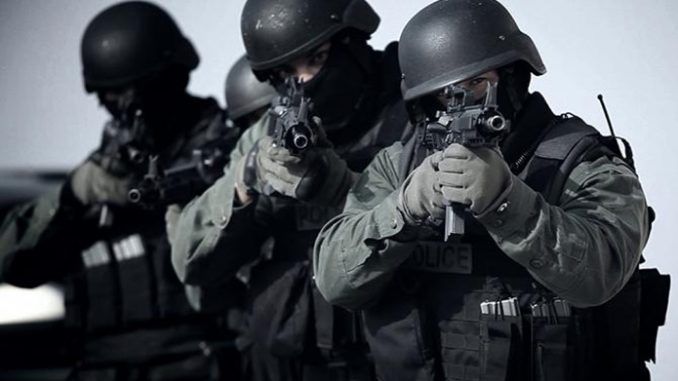
The DEA is not resolving the drug problem in America.
The agency is playing both sides of the fence in the drug trafficking world and has morphed into a drug overlord.

BYPASS THE CENSORS
Sign up to get unfiltered news delivered straight to your inbox.
You can unsubscribe any time. By subscribing you agree to our Terms of Use
It is not just involved in controlling the supply side of drugs but also the demand side of the equation, giving it powers that South American drug lords can only dream about.
The Drug Enforcement Administration has not denied letting drugs into communities and selling them to citizens.
Meanwhile people on their way to commemorate Bob Marley are being unjustly fleeced on highways for funding.
The DEA, tasked with enforcing federal government’s prohibition on drugs, is actually trafficking large quantities of drugs for the ostensible purpose of catching bigger drug dealers, or just to steal cash from people.
When Richard Nixon decided to bring the War on Drugs into full force, he signed Reorganization Plan No. 2, in 1973, which established the Drug Enforcement Administration (DEA). For decades, the DEA has carried out a war on people as it enforces the senseless, unjust prohibition of arbitrary substances.
Government ruins countless lives – locking people in cages for years or life, tearing apart families – for victimless “crimes” such as possessing cannabis or other “illicit” drugs. In a glaring example of hypocirsy, however, the DEA is teaching Americans a telling lesson —you’re not supposed to sell or possess substances that are deemed illegal by the State, unless you work for the State.
In a recent House Judiciary Committee Hearing, the DEA’s acting director, Chuck Rosenberg, was caught off-guard by a question and tacitly admitted that his agency sells drugs and lets drugs flow into communities. The ostensible purpose is to catch bigger drug dealers, but Rosenberg could not even summon the typical bureaucratic doublespeak to address the issue.
Louisiana Rep. Cedric L. Richmond was questioning Rosenberg at the hearing.
RICHMOND: This committee held many hearings, and was furious about the Fast and Furious program. At least from my knowledge of DEA and other drug agencies, oftentimes part of a bigger sting is letting transactions and other things go through. Now, it’s a very specific question. In DEA’s past, present, future, any times do you let drugs hit communities to get the bigger fish?
ROSENBERG: We’re not supposed to – no, sir.
RICHMOND: Okay. Are you aware of any instances where it may happen?
ROSENBERG: I’ll have to check and get back to you on that.”
Rosenberg’s first answer was actually, “We’re not supposed to – no, sir.” However, this does not change the reality of the situation that DEA lets drugs flow into communities and actually sells drugs. Rosenberg didn’t deny it, because denying it would amount to lying.
As the Washington Post notes, DEA’s drug trafficking occurs through undercover agents and the use of confidential informants.
DEA catches small-time drug users or sellers and threatens jail and other punishments, unless the subject agrees to work for the government as a confidential informant. The DEA then has the frightened subjects engage in “otherwise illegal activity,” having them pose as buyers or sellers of drugs.
DEA is “trafficking in what would be considered as large quantities of controlled substances,” as a 2015 Dept. of Justice Inspector General report noted. That report also stated: “These inadequate DEA policies and procedures related to OIA greatly increase the risk to the DEA, the U.S. government, and the public from the involvement of DEA confidential sources in OIA.”
Indeed, the threat to the public is well documented, as some of those coerced into becoming informants end up murdered. In one heartbreaking case, Rachel Hoffman – a young college graduate whose “crime” was smoking pot – was shot and killed after cops coerced her into going undercover for a large drug deal.
No one really knows the scale of DEA drug trafficking, as the agency does not release this information, but outside experts say the DEA sells drugs on a routine basis.
Even more infuriating is the fact that DEA and law enforcement let drugs flow into communities for the sole purpose of seizing cash and assets under the insidious practice of civil asset forfeiture, or policing for profit. As we reported on March 30, the DEA has stolen $3.2 billion over the past decade – from people never charged with a crime. Drug task forces work the highways where they know cash travels, instead of the actual drug routes.
“We are deliberately letting the drugs get to their final destination, get sold, get used, and in some cases letting someone die of an overdose,” said Brady Henderson of the ACLU.
So let’s get this straight. The DEA, tasked with enforcing federal government’s prohibition on drugs, is actually trafficking large quantities of drugs for the ostensible purpose of catching bigger drug dealers, or just to steal cash from people. After decades of the miserable drug war, drugs and drug use are still as prevalent as ever, so the war on drugs clearly is not working.
But the DEA still funnels large quantities of drugs into communities, even though their success rate at combating drug use is ZERO as drug overdoses are at an all time high. What, then, could possibly be the rationale for continuing?
The thrill of exerting power over the populace is one answer. Continuing the oppression of minorities and dissenters is another. The billions of dollars stolen from innocent people is surely an incentive to continue. Protecting the profits of Big Pharma is another answer to this puzzling irrationality.
The DEA was recently caught deliberately slowing its investigations into the makers of prescription opioid manufacturers, which constitute the biggest and most deadly drug dealers in the nation. The DEA’s first case against an opioid maker faltered, resulting in a laughable $35 million fine against the company.
Exhibit A of DEA’s astounding level of ignorance and injustice is their maintaining of cannabis as a Schedule 1 drug with “no accepted medical use.” Even as most U.S. states have recognized the amazing power of cannabis to heal a variety of ailments, DEA somehow remains in a state of total denial.
The War on Drugs is a war on people. The DEA not only ruins lives by enforcing unjust prohibition, but it’s also neck deep in the black market.
Justin Gardner / The Free Thought Project
Edmondo Burr
CEO
Assistant Editor
Latest posts by Edmondo Burr (see all)
- Police Arrest Suspect In Supermarket Baby Food Poisoning - October 1, 2017
- Seoul Secures Data From Electromagnetic Interference By N Korea - September 30, 2017
- The ‘World’s First Internet War’ Has Begun: Julian Assange - September 30, 2017


Be the first to comment